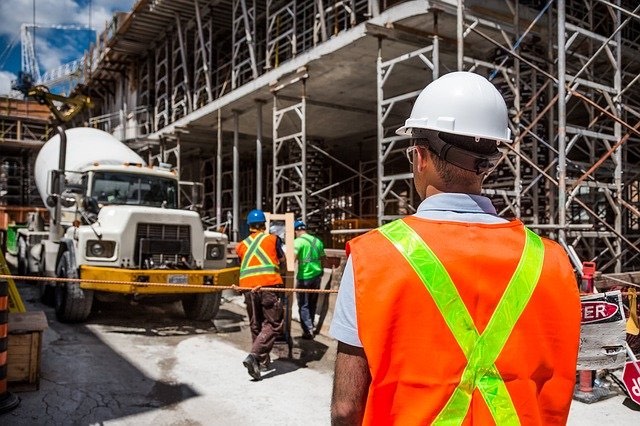
Published: August 27th, 2020 in Business
In the wake of the coronavirus, HMRC has pushed back the rollout of several legislative changes including a delay to the domestic reverse charge for construction services. This was due to come into force on the 1st October 2019 and was originally deferred due to increasing resistance from industry bodies and representatives who highlighted issues with insufficient preparation time for businesses.
The VAT reverse charge rollout was initially deferred until October 2020 but due to the coronavirus pandemic, it has been subject to a further five-month delay until March 2021.
This is welcome news for many businesses within the construction industry who are no longer under pressure to prepare for what is a fundamental change to the way VAT is paid.
The new date provides much-needed preparation time for contractors and subcontractors to prepare and make the changes required to their systems and processes.
What is the construction reverse charge VAT scheme?
The construction reverse charge VAT scheme is a major amendment to the way VAT is accounted for in many areas of the construction industry.
The reverse charge is designed to tackle fraud whereby the customer will now have to pay VAT to HMRC instead of the supplier, meaning the supplier can no longer disappear without paying VAT to HMRC. A phenomenon which has been alarmingly common.
This scheme isin many ways an extension of the Construction Industry Scheme (CIS) that has already set out principles and procedures to reduce fraud and unpaid tax in the construction industry. The reverse charge applies only to transactions accounted under the CIS between contractors and sub-contractors that are both VAT-registered.
How does this differ to how VAT is normally charged?
VAT applies to nearly every purchase in the UK including the purchase of many construction services and products. It’s normally a consumption tax, meaning it’s paid by the customer to the supplier. The supplier is essentially charged with the role of collecting VAT and then paying it to the government.
In the construction industry, the traditional system of VAT accounting has been identified as an opportunity for fraud, where VAT is collected by the supplier from the customer and then not paid to the government as it should be. The supplier simply vanishes or enters into liquidation and whatever VAT it owes to HMRC is never paid, leaving the public purse out of pocket.
When does the construction reverse charge VAT scheme apply?
The reverse charge affects the supply of building and construction services that need to be reported under the existing CIS. It will affect many contractors and subcontractors within the typical construction supply chain. It will also apply to construction materials directly related to construction services covered by the scheme.
The reverse charge is applied by the supplier and paid by the customer for these services:
- Any construction project involving building, altering, repairing, demolition and extensions
- Construction projects involving any of the above on walls, roads, power lines, runways, railways, docks, harbours and telecoms
- Reservoirs, sewers, wells, industrial plants for land drainage, river and coast protection, water mains and pipelines
Installation of heating, air-conditioning, power supply, sanitation, lightning, or water and fire protection systems
Internal cleaning services - Painting and decorating, both inside and out
- Any service that forms an integral component of the above
A full list of services the reverse charge can be applied to can be found here along with a list of services that are not relevant to the reverse charge.
HMRC released this 5-statement test for deciding whether the reverse charge applies to a sub-contractor:
- Are the supplies and services of the project covered by the CIS?
- Is the customer VAT registered? (If not, VAT is accounted for in the usual way)
- Will the payment be reported electronically under the CIS?
- Is the customer definitely not an end-user?
- Is the supply of goods and/or services at a standard or reduced rate?
What is the purpose of the scheme?
The scheme provides a very simple and effective way of combating common fraud rife in the construction industry. The fraud involves construction services charging the customer VAT before disappearing without paying the VAT bill to HMRC. They can be very hard to track down and HMRC rarely recovers the unpaid tax. The issue is compounded when the guilty party is able to charge unfairly competitive rates compared to the competition due to the extra profit they are making from unpaid VAT.
The reverse charge simply moves VAT accounting one notch down the supply chain, relieving service providers of their responsibility to account for VAT and shifting it onto the customer.
Reverse charge schemes are not unique to the construction industry but apply also to electronic chip retailers and wholesaler energy suppliers.
Why has the construction reverse charge VAT scheme been controversial?
Any alteration to the supply chain in a complex and sensitive sector such as the construction industry can cause serious temporary disruption. The reverse charge is a major administrative change that will take time to percolate through effectively to businesses.
Indeed, HMRC said they would apply a ‘light touch’ when dealing with any mistakes or late payments within the first of the scheme, but still, the construction industry won the argument with HMRC that they should be afforded more time to prepare for the change.
In light of coronavirus, the worry that the reverse charge will burden administration and reduce productivity has only intensified, hence why the government has postponed it further.
Timeline of Delays
- The reverse charge was originally due to come into force in October 2019. Construction associates wrote to the then-Chancellor Sajid Javid then to request a delay, citing the industry was not adequately prepared for legislative change. The chancellor agreed to a 12-month extension until October 2020.
- The impact of coronavirus forced Chancellor Rishi Sunak to add a further delay to the reverse charge as urged by construction associates. The letter, signed by many building associations and regulators, claimed:
- 39% of construction companies were still not even aware of the reverse charge.
- 36% haven’t taken steps to prepare.
- 30% have not yet discussed any details of changes with their accountant.
Summary
The reverse charge is inevitable and it’s likely that March 2021 is the final date for its rollout. The scheme is mandatory but it is also tax-neutral – it is merely a change in the supply chain dynamic of construction projects.
However, making the necessary procedural changes to accommodate the change will be undoubtedly complex and getting ahead of the game is important to avoid any forthcoming penalties or other issues.
For now, businesses should check their sales and service pipelines for possible scenarios when the reverse charge will apply. Accounting systems and software should be updated and any possible technical difficulties should be flagged and addressed proactively.
Contractors should review contracts with subcontractors to discover where the reverse charge may apply. Suppliers should be notified in any case where the reverse charge will likely be applied. Subcontractors will need to discover which customers are end-users (and will therefore be paying the reverse charge).
Of course, such legislative changes are complex but auditing your business properly will greatly smooth the transition when it comes into force. Luckily, there is enough time to comb through your business operations with the assistance of an accountant to identify where and when the reverse charge might apply to you.
If you need friendly advice on how your business implements the new scheme, then please call the team at TFMC on 0800 470 4820.




